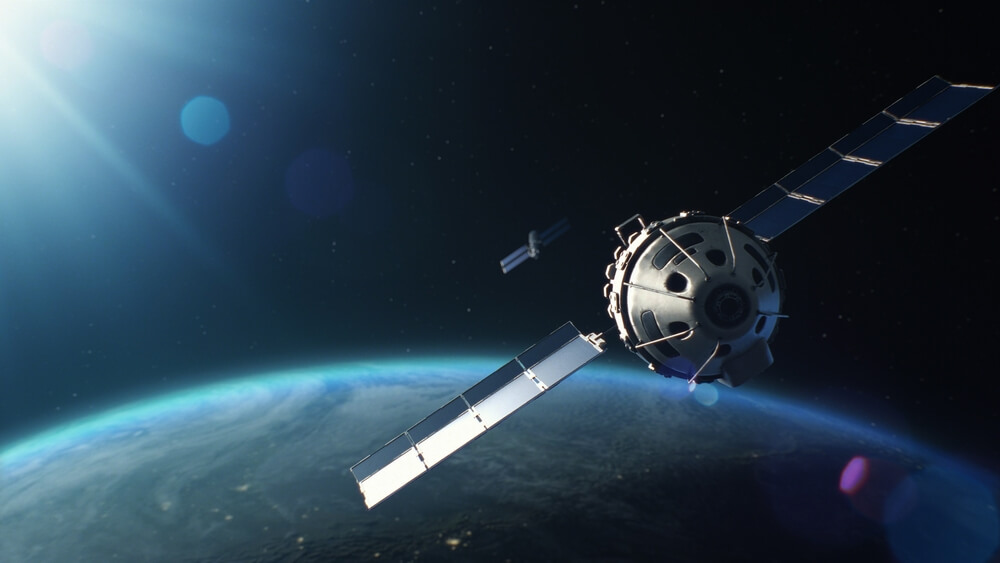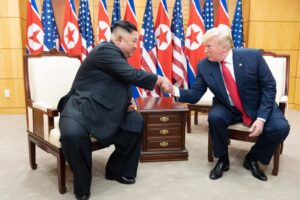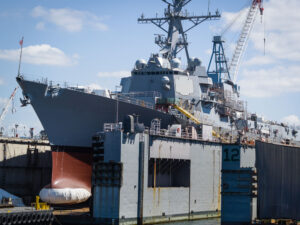While Russia seeks Ukraine’s subjugation in Europe and the People’s Republic of China (PRC) looms as a rising danger to Taiwan across the sea in the Pacific, the military dimensions of space have grown ever more important. This is especially true given recent reports that the Pentagon is closely monitoring China and Russia’s new aggressive space capabilities.
In what some observers have called an “Anti-Satellite Age,” dangerous American adversaries like China and Russia increasingly cooperate. The corresponding uncomfortable reality is that many space and defense contractors have vulnerabilities that the PRC and Russia can exploit.
As the Council on Foreign Relations recently analyzed in a task force report, America in recent years has deployed more numerous, smaller space assets to counter satellite vulnerability, yet these efforts “have not kept up with the threat.”
Even SpaceX, which was responsible for 95 percent of all U.S. orbital launches last year, faces such vulnerabilities.
Worries about China business dealings
In last five years, a diverse group, from then-Sen. Cory Gardner, R-Colorado, a member of the Senate Armed Services Committee, to retired Army Lt. Gen. Russel Honore, have worried about SpaceX CEO Elon Musk’s China business dealings.
In particular, Musk’s Shanghai-based Tesla plant, raises fears about China’s “Military-Civil Fusion Laws.” Under these laws, corporations in China must reveal new technologies to the government, which could have inadvertent spillover effects upon SpaceX, thereby posing risks to America’s national security.
The broader point remains valid: unlike elected officials or military commanders, private companies have no duty to official policies or national defense strategies. Thus, tightened contractor vetting and oversight mechanisms — which can quickly remedy many of the vulnerabilities that contractors face — will prove essential, as will ensuring as much contractor diversity as the market allows.
Consider the stakes.
Musk’s Starlink and other satellites are key targets for China’s anti-satellite (ASAT) efforts in ongoing efforts to isolate or even conquer Taiwan, which had to develop Starlink alternatives after it rejected Taiwanese joint venture regulations.
Moreover, media reports from January highlighted research in China into new artificial intelligence–driven ASAT methods to attack Starlink satellite constellations. With this new technology inspired by whale hunting behaviors, 99 Chinese satellites could approach – and presumably destroy – almost 1,400 Starlink (or other) satellites in the first 12 hours of a war with Taiwan.
Such ASAT campaigns, combined with the cutting of Taiwan’s undersea communication cables, whose vulnerability appeared again in a recent suspicious cable cutting incident, could isolate the island from the world in the event of conflict.
Two formidable adversaries in space
These threats exist within a world of active Chinese and Russian espionage campaigns targeting America. Thus, even one unintentional security breach at Musk’s American satellite monopoly can provide two adversarial countries, already partners in space, with a significant national security advantage.
These two Eurasian dictatorships are formidable adversaries. U.S. Air Force Gen. Stephen N. Whiting, U.S. Space Command commander, has observed that “the PRC is growing its military space and counterspace capabilities at breathtaking pace to deny American and Allied space capabilities when they so choose.”
On Feb. 29, he testified before the Senate Armed Services Committee that “by 2030, the PRC will, by many estimates, achieve world-class status in all but a few space technology areas” and “seeks to match or surpass the United States by 2045.”
Gen. Whiting also stated that “Russia will remain a formidable and less predictable challenge” to the United States in this respect, with Ukraine conflict losses increasing Russian reliance on cyber and space capabilities.
Indeed, Russia recently moved to develop satellite-based nuclear weapons that not only could destroy swarms of satellites, but leave low-Earth orbit unusable for a full year. While arms control devotees note that the 1967 Outer Space Treaty prohibits space stationing of such weapons of mass destruction, Russia vetoed an American-sponsored April 2024 United Nations resolution affirming the treaty.
Such hard facts manifest how holding corporations accountable to the national interest must go hand in hand with strengthening America’s defenses in space. America cannot afford to lose the new space race and will therefore need more than one rocket man.







